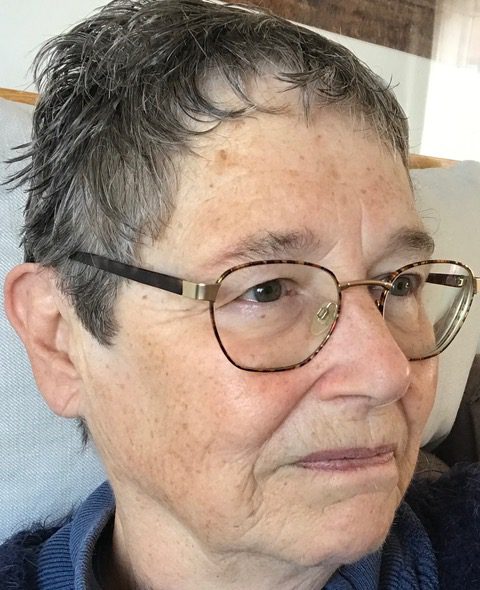In September 2020 I was a writer, educator and editor, with a background of almost thirty years as a psychotherapist.
In September 2022 I was diagnosed with Alzheimer’s Disease.
I am still the same person now
I was still the same person. I’m the same person now. I have a new label to add to my varied collection of labels. For some people I meet, the dementia label trumps all the others – once there’s dementia, that’s all they can see. That seems to entitle them to exclude and patronise. But I’m fiercely protective of the whole human being I know I am, and of other people in similar positions. That’s what gives me hope.
I’ve always been acutely aware of the painful gaps between who we are and how we’re seen. I’m also acutely aware that all of us change, all the time. There isn’t one solid, distinct ‘I’. All the aspects might jostle for position, but dementia is in no way who I am.
Forgetting doesn’t wipe out the experience
Sometimes I forget what happened yesterday. I have to check my diary to find out. But the forgetting doesn’t wipe out the experience, and it certainly doesn’t wipe ‘me’ out. Words go missing when I speak, but they’re available when I write. My aunt could sing songs when all her conversation had slipped away. Christine Bryden has spent much of her adult life as a dementia activist, and she argues forcefully that we are still ourselves, however cut off we might seem sometimes. (‘Who will I be when I die’, Jessica Kingsley Publishers).
A dementia diagnosis should be followed by good support
A diagnosis of dementia takes years for too many people. Sometimes that’s because of the level of fear we have of this condition. During those years, things crumble. We might be aware of forgetting, losing words and organisational skills. We might feel a failure, or something more frightening. If those around us notice, they may criticise, judge, feel irritated or helpless. That’s an excellent recipe for bad feelings about ourselves, for withdrawing and giving up. So when the diagnosis comes, that piles on top of all the failures and the faults. A diagnosis needs to be followed by the kind of support which empowers and enables us to live the best way we can. That doesn’t come in a pile of leaflets, it comes with listening.
I wanted to know
I had one incident which held up a warning sign, I was determined not to hang on waiting. I didn’t want to push this aside, I wanted to know. So now I know, and it has been a shock, and sad. But I’m still able to think, write, make decisions about my life. I’m able to talk to family and friends, and listen to them too. I still love going to the theatre, reading and growing vegetables. And with luck, I’m told, I may be able to live independently like this, for up to ten years or so. I’ve never been able to plan much beyond a year, so that’s okay.
Thinking about the future
This time gives me the space to be clear about what I need and want for the future, and I can pass that information on to others. It’s giving me time to sort out the paperwork and fill in the forms. And it gives me the space to adapt and learn. When I forget, I know it’s not a failure or a fault, it’s a process which is damaging my brain. I can’t help forgetting, and niggling at a lost word won’t get it back.
I’m getting on with life
I’ve learned to use Alexa to substitute for the memory of what needs to be done each day, and the appointments in the diary. I’ve simplified and slowed down a bit. I’ve had a hearing test, as there’s a connection, and I’m waiting for hearing aids. I have better days and harder days, and sometimes not much gets done. And that’s okay.
Thanks to the DEEP Network (Dementia Empowerment and Engagement Network) I have met other people who have dementia and are fully in their lives. They’ve given me hope, and they’re supporting me in doing what I can locally to challenge some of the attitudes and stigmas around dementia.
Life ends with death, we know that, though it’s often shoved away. I have some choices about how mine will end. It’s not a horror story. But how the process and the people are treated – there’s progress to be made there which could make a world of difference, to everyone involved.
A diagnosis of dementia doesn’t have to be a death sentence. It’s the beginning of a new phase of life.
I’m sharing my thoughts and experiences in a blog, www.maxinelinnell.com
You can find more information about Alzheimer’s Disease here
Find information on how using technology can help in your every day life too
For more information on how to start planning for your feature, read more here






